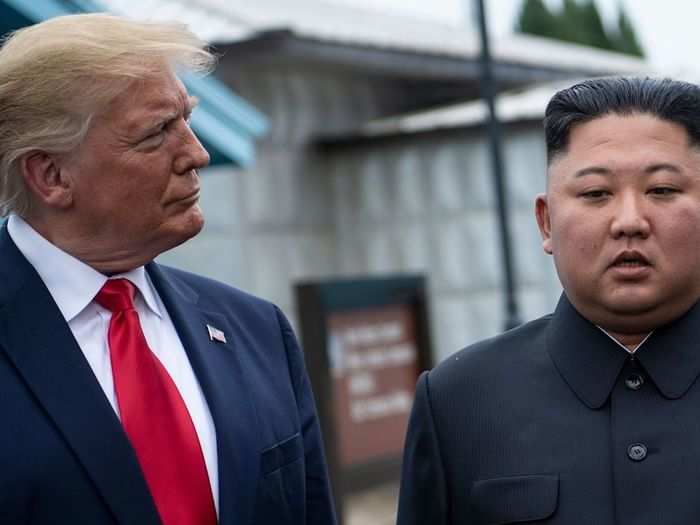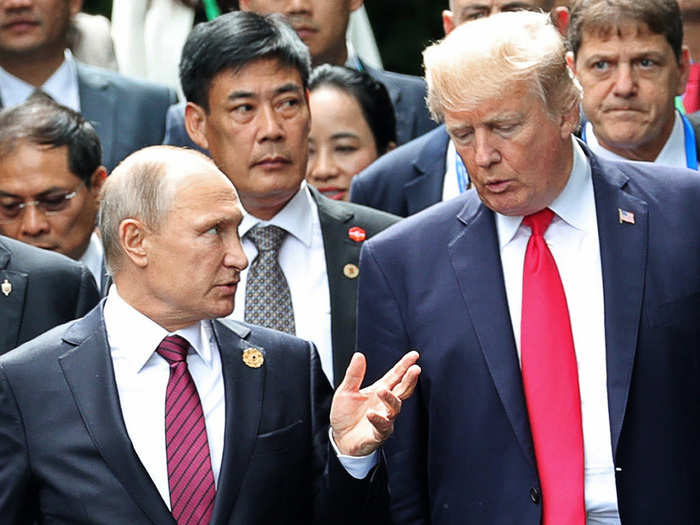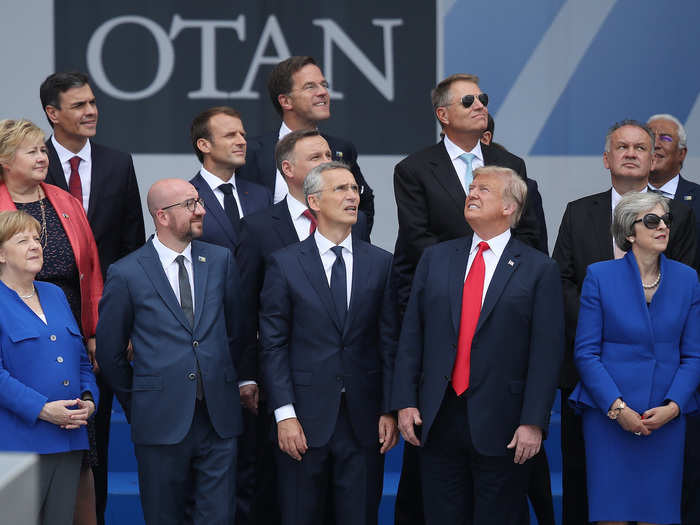- Home
- slideshows
- miscellaneous
- 4 things Trump should remember as he's picking his next national security adviser
4 things Trump should remember as he's picking his next national security adviser
Ending "forever wars."

Negotiating an end to nuclear crises.

Bolton's differences with Trump were never more glaring than on Iran and North Korea. Long an advocate of overthrowing Iran's theocracy, Bolton also publicly pushed for a pre-emptive strike on North Korea just weeks before he joined the administration.
On both issues the president openly contradicted his national security adviser. He also made North Korea the purview of Secretary of State Mike Pompeo. Trump canceled a planned strike on Iran after the June shootdown of a US drone, clearly disregarding Bolton's advice.
The next national security adviser should be someone who views Iran and North Korea as problems to be managed, not enemies to be destroyed. Violent, US-led regime change in either country would have massive negative consequences for the world: great power confrontation, an explosion of refugees, and even the specter of "loose nukes."
Trump's appointee should be a temperamental believer in that apocryphal Winston Churchill line: "Jaw, jaw is better than war, war."
Improving relations with other great powers

Trump's desire to improve relations with Russia has been a casualty of both Russian actions and US domestic politics.
Despite borderline media hysteria to the contrary, Trump's administration has ended up with a hawkish Russia policy: Arming Ukrainian forces with anti-tank missiles (which President Obama refused to do), levying new sanctions, and, most recently, withdrawing from the Intermediate-Range Nuclear Forces Treaty. US troops killed perhaps dozens of Russian mercenaries in one battle in Syria.
Peeling Russia away from China, in an inversion of Nixon's strategic coup in breaking the Sino-Soviet axis, remains a sound idea. Whether it can be accomplished is another matter altogether. But Trump's new national security adviser should at least treat Russia rationally: Seek cooperation where possible and strive for a lessening of tensions.
Burden-sharing

President Trump has constantly attacked American allies for failing to do their share of the work for collective defense. His hectoring, however tactless in execution, is hard to argue with on the merits.
Only seven of America's 29 NATO allies meet the bare minimum threshold of spending 2% of GDP on defense — and three of those seven are the tiny Baltic states. German impotence is particularly galling: Though extremely prosperous and influential, Germany is utterly unwilling to fix its laughingstock of a military.
The situation in Asia and the Middle East is less glaring than in Europe, but all around the world rich American allies expect to free ride on the power of the US military. President Trump's refusal to escort the merchant ships of other nations in the Persian Gulf was the first substantive attempt to make the burden-sharing rhetoric a reality.
The president would do well to find a national security adviser who regards the current American alliance structure with the skepticism it deserves. Retired Army Col. Douglas MacGregor, reportedly a finalist for the job, has accurately labeled NATO a "zombie."
President Trump should disregard ossified foreign-policy thinking and choose an adviser who sees eye-to-eye with him on these four critical issues. Perhaps this fourth national security adviser can be Trump's last.
Gil Barndollar is a fellow at Defense Priorities and the Military Fellow-in-Residence at the Catholic University of America's Center for the Study of Statesmanship. From 2009 to 2016 he served as an infantry officer in the US Marine Corps, deploying to Afghanistan twice, to Guantanamo Bay, and to the Persian Gulf. He holds an AB in history from Bowdoin College and M.Phil. and Ph.D. degrees in history from the University of Cambridge.
Popular Right Now
Popular Keywords
Advertisement